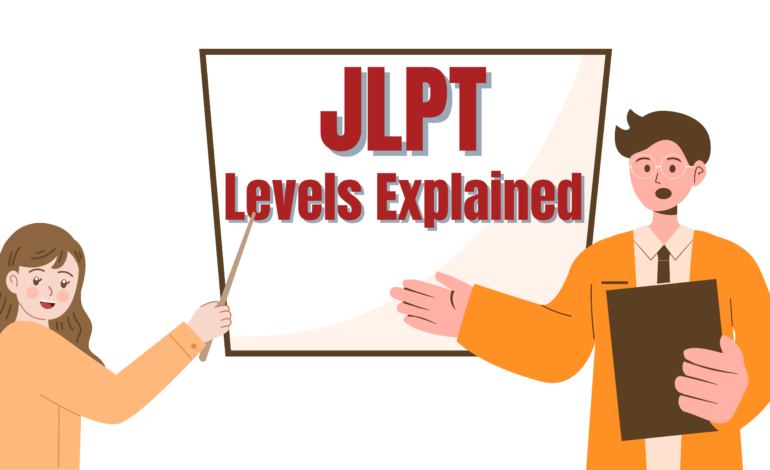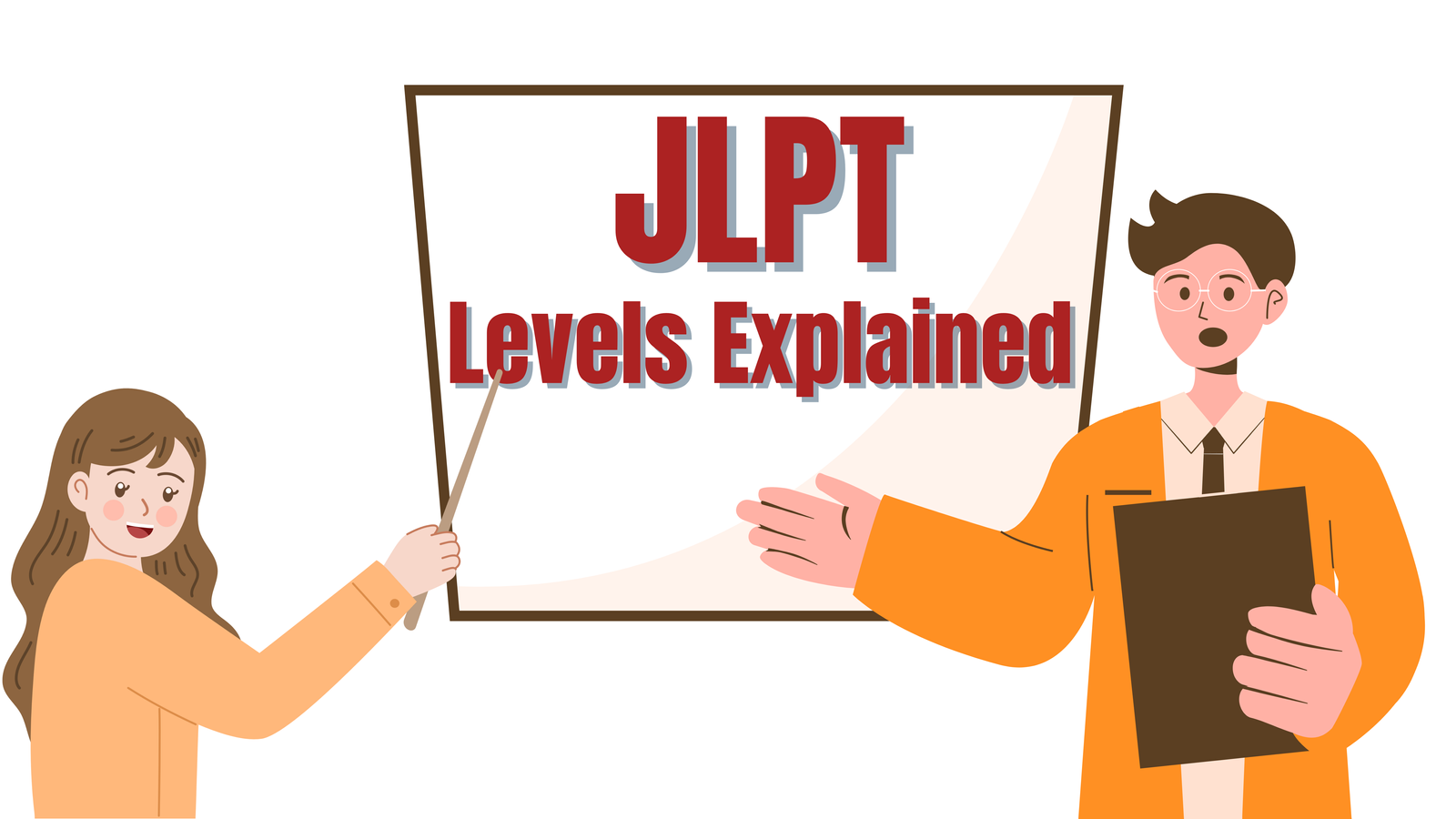
JLPT Preparation Guide – Your Ultimate Study Plan
The Japanese Language Proficiency Test (JLPT) is one of the most recognized certifications for Japanese learners worldwide. Whether you’re aiming for JLPT N5 as a beginner or challenging yourself with the N1 level, a structured JLPT preparation guide can make all the difference.
Many learners struggle with where to begin, what resources to use, and how long it takes to reach fluency. This informational guide will provide everything you need to know about preparing for the JLPT, including study materials, time management strategies, and frequently asked questions to set you on the right path.
If you’re looking for JLPT study guide PDFs, free books, and practice resources, this article has got you covered. Let’s dive into a complete step-by-step JLPT preparation strategy to help you succeed! visit this official website.
Understanding the JLPT Exam Structure
Before starting your preparation, it’s essential to understand how the JLPT is structured. The exam is divided into five levels, from N5 (easiest) to N1 (most difficult).

JLPT Levels and Their Difficulty
- N5 – Basic Japanese knowledge (common words, simple sentences)
- N4 – More advanced beginner-level grammar and kanji
- N3 – Intermediate level, capable of understanding everyday conversations
- N2 – Advanced fluency, required for working in Japanese-speaking environments
- N1 – Native-level comprehension, suitable for academic and professional settings
Each level tests vocabulary, grammar, reading comprehension, and listening skills. The exam does not include a speaking section, but listening comprehension plays a significant role.
If you’re preparing for the JLPT, don’t miss our detailed Japanese Language Proficiency Test guide to understand exam levels, format, and preparation tips.
How to Prepare for the JLPT Efficiently
To prepare efficiently for the JLPT, start by understanding your target level’s syllabus. Focus on vocabulary, grammar, and kanji daily, and practice reading and listening regularly. Use official practice tests to gauge progress, identify weak areas, and revise consistently. Incorporate flashcards, apps, and mock exams to enhance retention and build confidence before the test.

1. Setting Your Study Goals
Your study plan depends on your target JLPT level and timeline. Here’s a general guide:
- N5: 3–6 months (ideal for beginners)
- N4: 6–12 months
- N3: 12–18 months
- N2: 18–24 months
- N1: 2+ years of consistent study
2. Best Study Materials for JLPT Preparation
If you’re looking for JLPT preparation guide PDFs, books, and free downloads, here are some great options:
Recommended JLPT Books (Available in PDF & Print)
- JLPT N5: Genki I & II, Minna no Nihongo, JLPT N5 textbook PDF free download
- JLPT N4: Tobira, Try! JLPT N4, JLPT N4 practice book PDF
- JLPT N3: Kanzen Master N3, Sou Matome N3
- JLPT N2 & N1: Kanzen Master Series, New Kanzen Master Grammar
Where to Find JLPT Study Guide PDFs?
- Official JLPT website (practice tests & guidelines)
- Online language learning platforms (paid & free options)
- JLPT books PDF free download (check legal sources)
3. Creating a JLPT Study Schedule
A structured study plan helps you stay consistent and cover all key areas. Here’s a sample weekly schedule for JLPT preparation:
| Day | Activity |
| Monday | Vocabulary & kanji review |
| Tuesday | Grammar & sentence structure |
| Wednesday | Reading practice (short texts, news) |
| Thursday | Listening practice (JLPT audio, anime) |
| Friday | Mock test & writing exercises |
| Saturday | Speaking & conversation practice |
| Sunday | Review & self-assessment |
Essential Study Techniques for JLPT Success
For JLPT success, adopt structured study techniques: create a daily study schedule, break topics into manageable chunks, and use spaced repetition for vocabulary and kanji. Practice listening, reading, and grammar consistently, review mistakes carefully, and take mock tests to simulate exam conditions. Stay disciplined, track progress, and focus on weak areas for maximum improvement.
1. Vocabulary & Kanji Memorization Tips
- Use flashcards (Anki, Quizlet)
- Study JLPT-specific word lists
- Practice kanji using stroke order apps
Not sure which JLPT level to aim for? Read our detailed JLPT Levels Explained guide to choose the right level for your goals.
2. Mastering Grammar & Reading Comprehension
- Read news articles & short stories in Japanese
- Practice JLPT-specific grammar exercises
- Use grammar-focused textbooks (e.g., Try! JLPT series)
3. Improving Listening & Speaking Skills
- Watch Japanese dramas, anime, and news
- Listen to JLPT audio practice tests
- Join language exchange groups to practice speaking
Taking the JLPT – Registration & Test Day Tips
- How to register? Visit the official JLPT website for registration dates and locations.
- What to expect on test day? Arrive early, and bring your test voucher, ID, and pencils.
- How are scores calculated? You need a passing score in all sections to pass the exam.
Frequently Asked Questions (FAQs) About JLPT Preparation
1. How do I start preparing for JLPT?
Start with basic vocabulary and kanji, then move on to grammar and reading comprehension. Use practice tests to track progress.
2. Can I pass N5 in 3 months?
Yes! With consistent study (1–2 hours daily), you can pass JLPT N5 in 3 months.
3. Is Genki enough for N5?
Yes, Genki I & II cover most N5 grammar, vocabulary, and kanji, but additional listening practice is recommended.
4. How long should I study for JLPT?
It depends on the level:
- N5 – 3-6 months
- N4 – 6-12 months
- N3 – 12-18 months
- N2 – 18-24 months
- N1 – 2+ years
5. Where can I find JLPT practice tests?
You can find JLPT practice tests on the official JLPT website, language learning platforms, and in JLPT study guide PDFs.
6. Do I need to speak Japanese for the JLPT?
No, the JLPT does not include a speaking section, but speaking practice helps with overall comprehension.
7. What’s the best JLPT N1 book PDF free download source?
Look for legal sources such as official JLPT websites or Japanese language publishers that offer free materials.
8. Can I pass JLPT without taking a class?
Yes! Many learners pass using self-study methods, online courses, and JLPT preparation books.
9. Are there free JLPT study guides?
Yes, you can find JLPT study guide PDFs and free online resources from various websites and language learning forums.
10. How many kanji do I need to know for JLPT?
- N5 – 100+ kanji
- N4 – 300+ kanji
- N3 – 650+ kanji
- N2 – 1,000+ kanji
- N1 – 2,000+ kanji
Conclusion
Preparing for the JLPT doesn’t have to be overwhelming! With the right JLPT preparation guide, study materials, and a solid plan, you can pass any level with confidence.
If you’re looking for JLPT N5 textbook PDF free download, JLPT N4 practice book PDF, or a complete JLPT study guide PDF, be sure to explore the recommended resources in this article.
Good luck with your JLPT journey!





